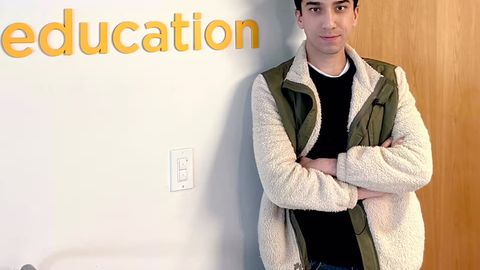Turkmenistan processes 20mn tons of cargo in 2025 as transit volumes rise 28%
17:50 / 22.02.2026
Afghanistan may face spring food crisis as funding gaps persist, WFP warns
16:21 / 22.02.2026
Kazakhstan strengthens measures to protect children from harmful online content
13:29 / 22.02.2026
Kyrgyzstan partners with EDB, UNDP, OSCE to develop SME support program until 2030
12:05 / 22.02.2026
Uzbekistan introduces green and gender-responsive budgeting into state budget framework
10:30 / 22.02.2026
Recommendations
Menu
Good news:
Tags
Grow your business with us
Advertise on Daryo.uzIndividual approach and exclusive materials
Ad-free site readingSubscribe
25 000 sum per month






Comments
To leave a comment, first